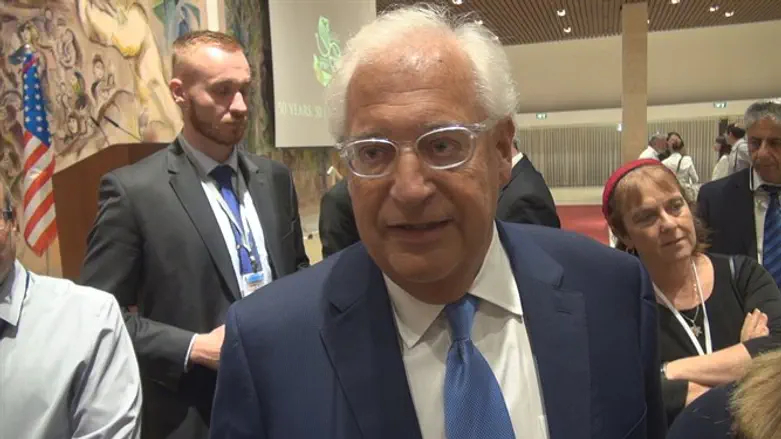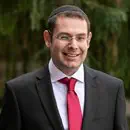
US Ambassador to Israel David Friedman recently asked the State Department to cease using the term 'occupation' to describe Israel's presence in Judea, Samaria, and eastern Jerusalem, according a report by Kan, the Israel Broadcasting Corporation.
According to the report, the State Department objected to the request, but eventually agreed to discuss the matter.
Ambassador Friedman described Judea and Samaria as being under an "alleged occupation" in an interview with the Jerusalem Post in September. Later that month, he stated that he believes Jewish communities in Judea and Samaria are part of Israel.
“I think the settlements are part of Israel,” Friedman said in an interview with the Hebrew language Walla website.
“I think that was always the expectation when Resolution 242 was adopted in 1967. It remains today the only substantive resolution that was agreed to by everybody,” he added.
“The idea [behind the resolution] was that Israel would be entitled to secure borders,” said Friedman. “The [then] existing borders, the 1967 borders, were viewed by everybody as not secure, so Israel would retain a meaningful portion of the 'West Bank', and it would return that which it didn’t need for peace and security.”
“So there was always supposed to be some notion of expansion into the 'jWest Bankj', but not necessarily expansion into the entire 'West Bank'. And I think that’s exactly what, you know, Israel has done. I mean, they’re only occupying two percent of the 'West Bank',” he pointed out. Areas A and B of Judea and Samaria are controlled by the Palestinian Authority.
Friedman also said that the Jewish communities in Judea and Samaria have an “important nationalistic, historical, religious significance” and added, “I think the settlers view themselves as Israelis and Israel views the settlers as Israelis.”
